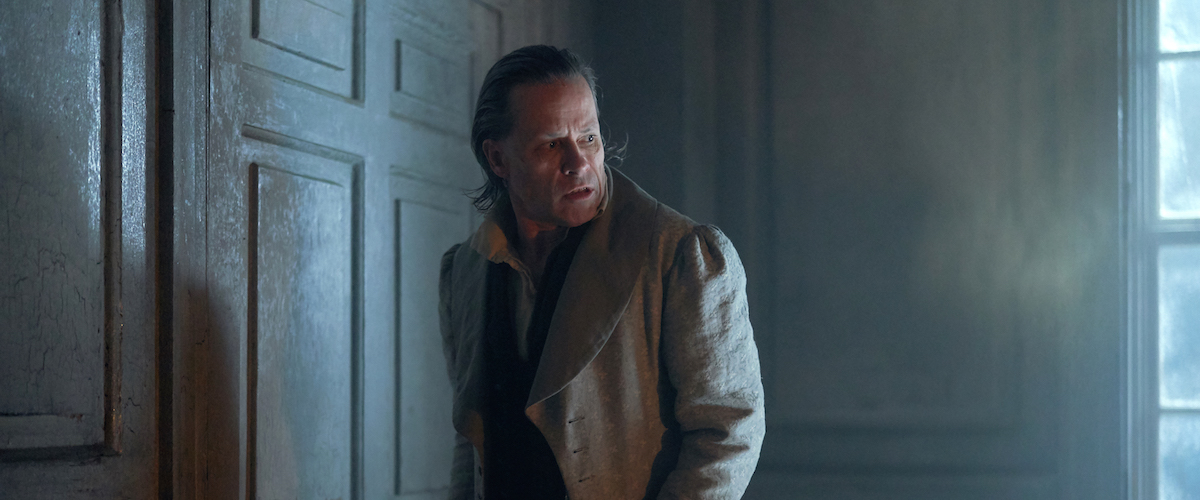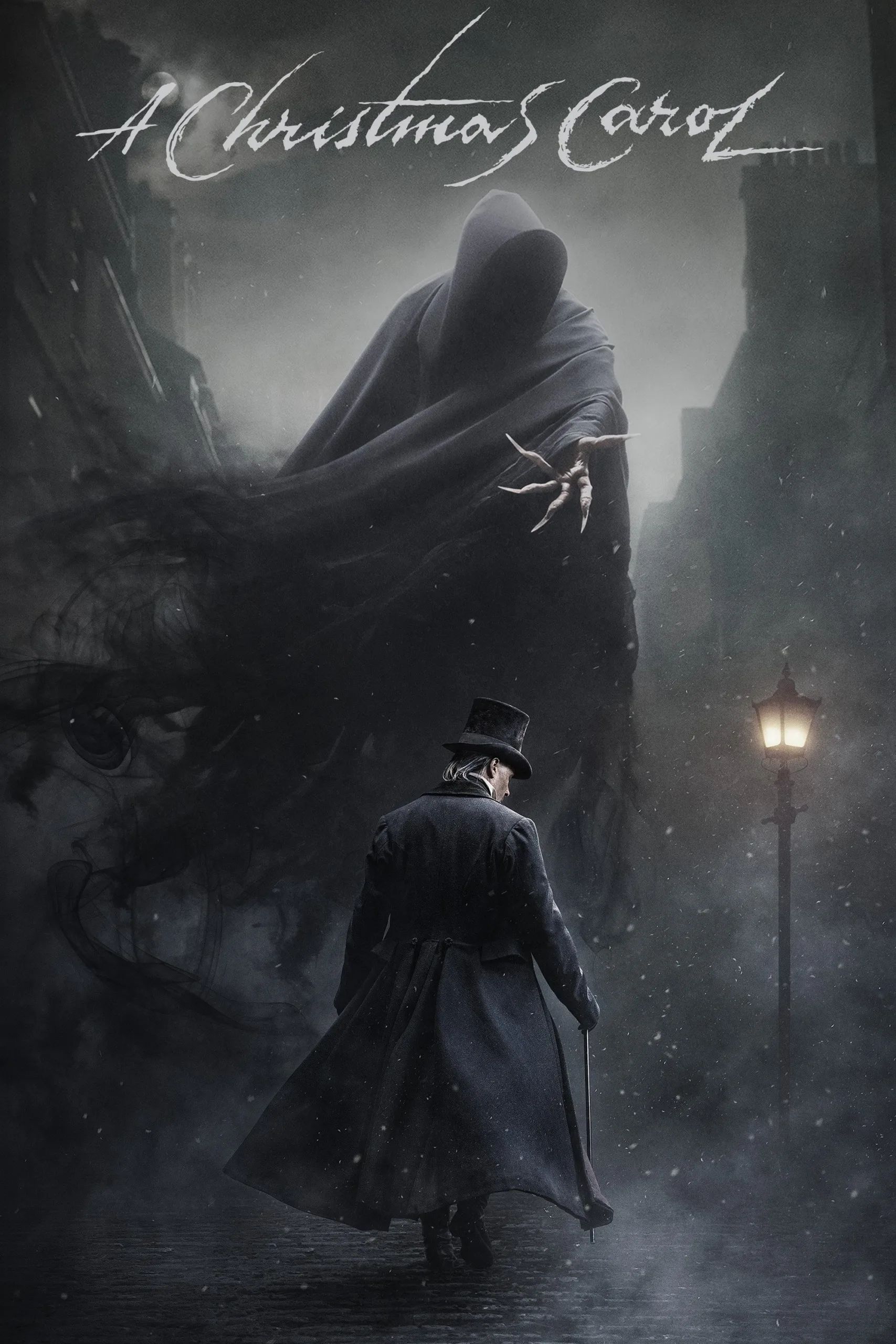Nick Murphy’s “A Christmas Carol” is not your community theater’s version of the Charles Dickens classic story, and it definitely has more images of death than “The Muppets Christmas Carol.” Instead, this FX Original Movie (airing in its entirety Thursday, December 19) is the dark and gritty version of a holiday story that was already about a man’s cruelty. Whereas some stories seem to pull back on Ebenezer Scrooge’s destructive selfishness, this one goes all-in, and it makes for approximately three joyless hours of watching an adaptation try to justify its edginess.
Adapted for the screen by Steven Knight (“Locke,” “Serenity”), “A Christmas Carol” offers a murkier, muddier journey down a familiar story path, and exists as this weird experiment to see if the rewards in Scrooge’s can manage his more adult flaws. Guy Pearce plays this iteration of the holiday hater with plenty of cold stares, transforming Scrooge’s cold indifference to the holiday into downright villainy. People have died directly because of his distaste for people, this movie will talk about, and then show us. Pearce is formidable in the iconic role, but his performance, and his take on the character, is not in the least surprising.
For good measure, Knight’s version starts off with someone pissing on the gravestone of Jacob Marley (Stephen Graham), Scrooge’s partner in creating a selfish enterprise that controls the lives of Bob Cratchit (Joe Alwyn) and his family, including his wife Mary (Vinette Robinson) and their son Tiny Tim (Lenny Rush). Marley’s pleas for redemption while stuck in purgatory are answered with the demand that Scrooge must repent, too; knowing that it’s impossible, Marley nonetheless appears (in chains) to tell Scrooge about the Christmas ghosts who will visit him as a type of reckoning.
Knight’s script spends a lot of time with Scrooge and the Ghost of Christmas Past (Andy Serkis), who turns into important figures from Scrooge’s past, like his father Franklin (Johnny Harris) or his favorite literary character as a child, Ali Baba (Kayvan Novak). This makes for a scene that looks like it could give the story a sense of life—Scrooge meeting the childhood hero who filled his imagination for years—until it careens to a memory that involves child abuse, and Scrooge being rescued by his sister from a predatory boarding school master.
This “Christmas Carol” has darker ideas for how Scrooge would maliciously dehumanize people, going so far as to get Scrooge verifiably canceled. One can’t help but think that a story involving him harassing Mary Cratchit was added in part because of a recent public reckoning with high-profile predators. It doesn’t feel out of place in terms of Murphy’s relentlessly bleak tone, but the execution is tone-deaf (as is the handling of Scrooge’s own history of abuse), especially with its place in a story of forgiveness. While this tangent does give Mary Cratchit a bigger presence than she’s had in other iterations, and makes for a stalwart performance from Vinette Robinson, it’s a recklessly half-baked concept.
Unable to fill its oppressively bleak color palette with anything that’s particularly scary, (though there are a few good moments of nasty special effects, including a removed jaw) “A Christmas Carol” is preoccupied with pain as its edgy addition to the Dickens tale. But as harrowing as it may be to see victims of a Scrooge mine collapse, or a Scrooge factory fire, you know what classic realizations Scrooge will ultimately have when he sees such ornate suffering—and such familiarity feels anticlimactic for the grandiose statements this adaptation wants to make.
There’s something strange about the adult factor of this movie too, a rare “Christmas Carol” that is decidedly not family fare given some of its language and general content. An attempt to steer the story away from families seems relatively pointless, as moralizing stories always seem best when their aim involves kids. The everlasting idea behind “A Christmas Carol” is that its lessons can radio signal any person in progress, just like a monologue from Mr. Rogers is for all ages, without needing to use gravely serious language. Instead, this movie’s limits are obvious, in terms of its eloquence and its targeted audience.
“A Christmas Carol” even seems to be thwarted by the very thing it’s about—any time the holiday is mentioned, it breaks the movie’s desired spell of being its own dangerous beast. Instead, you’re reminded that all of this is still about the not-so-deadly-serious holiday of Christmas. Yes, you’ve seen this story before, but you’ve undoubtedly had more fun watching someone else’s take on it.




















